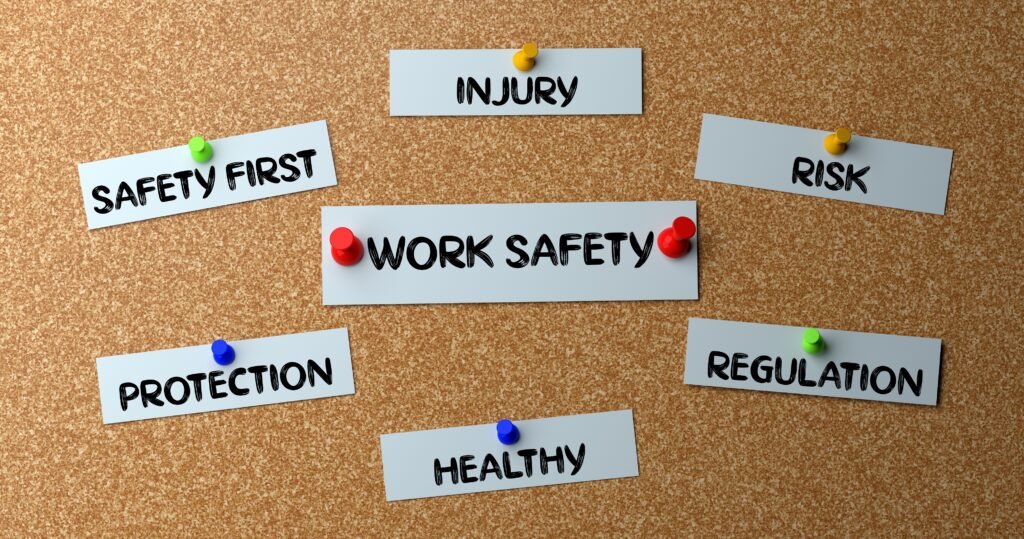On November 28, 2023, Regulation of the Minister of Manpower No. 11/2023 on Occupational Safety and Health in Confined Spaces (hereinafter “the Regulation”) was promulgated and enacted in Indonesia. The Regulation provides requirements for work performed in confined spaces. These requirements include restriction of access, confirmation of entry permits, provision of necessary equipment, and assignment of certified experts.
Definition of confined spaces
For the purposes of the Regulation, the term “confined space” is defined as “a space that is reasonably large, has a structure such that workers can enter and perform some work, provides limited means for entry or exit, and is not designed for workers to work in sustainable or continuous manner. Specifically, the following are designated as confined spaces.
- Tanks and/or vessels, steam generators, furnaces/kilns, silos, chimneys
- Pipelines, tunnels, and other similar underground structures
- Wells or holes with openings at the top, whether natural or artificial, exceeding 1.5 meters in depth
- Other spaces designated as confined spaces by the relevant manager or management
Requirements of occupational safety and health in confined spaces
The requirements for occupational safety and health in confined spaces are composed of the following six elements:
- Determination of classifications
- Restrictions on entry into confined spaces
- Entry permits
- Safety work procedures
- Equipment and supplies
- Occupational safety and health (K3) personnel
First, for the determination of classifications, as shown in item (a) above, workplace managers must classify all confined spaces into “confined spaces requiring entry permits” or “confined spaces NOT requiring entry permits.” Whether a certain space falls under “confined spaces requiring entry permits” or not is determined by its potential hazards (e.g., the possibility of the space becoming filled with hazardous gases or of workers being locked in etc.).
For the purpose of “restrictions on entry into confined spaces” (item (b) above), the following measures are required for confined spaces:
- Closure, locking, or marking;
- Installation of passive barriers or obstacles; and/or
- Display “Do Not Enter” signs.
In terms of the “entry permits,” (shown as item (c) above), rules on permission to enter any confined spaces requiring entry permits are provided. Workers must obtain an entry permit prior to performing work in the applicable confined space. To grant an entry permit, protective equipment, emergency rescue procedures, hazardous gas monitoring methods, and other safety measures must be inspected in advance. In addition, the person in charge of the work must ensure that the workers have obtained an entry permit. The permission issued must also be posted at the work site.
For the item (d) “safety work procedures,” requirements for ensuring safety when working in confined spaces are specified. Specifically, the following six requirements have been set:
- Conducting ambient tests for hazardous gases
- Cleaning or flushing hazardous elements
- Locking or isolating energy sources
- Maintaining air circulation
- Securing communication systems
- Preparing emergency response plans
Of the above, the results of ambient tests for hazardous gases and lock or isolation of energy sources must be recorded using the format specified in Annex to the Regulation.
For the purpose of item (e) “equipment and supplies,” managers must ensure that equipment and supplies needed for works in confined spaces (e.g., hazardous gas testing devices, lighting devices, communication equipment, protective equipment, etc.) are provided. Such equipment and supplies must comply with Indonesian national or international standards.
Finally, the item (f) Occupational safety and health (K3) personnel, requirements for the following three types of experts that must be assigned are specified:
- K3 Technician for Confined Space
- Gas Detection Technician for Confined Space
- Rescuers for Confined Space
These specialized personnel must meet the Indonesian National Occupational Competency Standard (SKKNI) and be certified. In addition, they must also apply to the Ministry of Manpower and obtain their respective occupational health and safety licenses.
The Regulation can be downloaded at:
https://jdih.kemnaker.go.id/asset/data_puu/2023PMNaker011.pdf
 Indonesia promulgates new OSH regulation for confined spaces
Indonesia promulgates new OSH regulation for confined spaces 

























